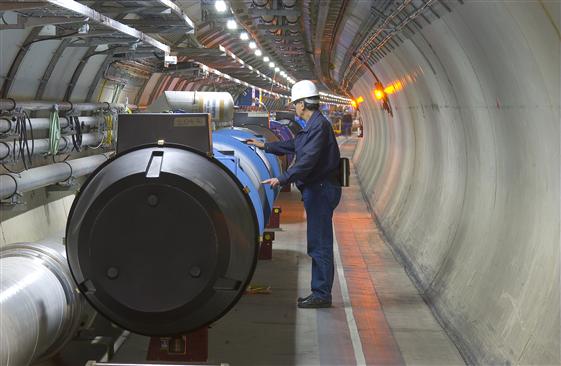Any effort to forecast the future of Earth and its people is, inevitably, tentative. AI might revolutionise healthcare; human inhabitants of Mars may evolve into a different species; palates may eventually warm to the idea of an insect-based burger. I cannot predict the future, but there are two things that I can say with near certainty: the world in 2050 will be more crowded, and it will be warmer.
Fifty years ago, the global population was 3.5 billion, but this is predicted to rise to around 10 billion by 2050, impacting increasingly on our infrastructure. Food production has largely kept pace with the rising population and, while famines still occur, they are more often caused by conflict and maldistribution than overall scarcity. This may not continue, and the geopolitical stresses are most worrying.
In recent years climate change has acquired global attention, yet it remains chronically under-addressed. It is difficult for people, businesses, and governments to prioritise action that will benefit people elsewhere in the world decades hence. Even those who agree that there is a significant risk of climate catastrophe differ in how urgently they advocate action today.
I recommend maintaining a pragmatic approach, balancing professional optimism and political pessimism
The Earth has existed for 45 million centuries, but this is the first where the planet’s future hinges so heavily on a single species: ours. A daunting task, but there is hope. Consider technologies such as the smartphone or the internet – just 25 years ago they would have seemed like magic. These two innovations transformed the world so greatly, and so quickly, that we must keep our minds open to advances dwelling currently in science fiction.

I recommend maintaining a pragmatic approach, balancing professional optimism and political pessimism. We should evangelise new technology, for without it we won’t be able to sustain an expanding population; and we should be wary that politicians are unlikely to prioritise the necessary global and long-term measures unless voters continue to call for them.
Technological advancement has provided people with safer, longer, and more satisfying lives than ever before. However, climate change and unintended downsides of advanced technology are collateral impacts of some of these advances. Consider, for instance, the fires currently burning in Australia, and the growing surveillance of our personal data.
To protect our planet’s future, we need wisely directed technology and appropriate investment. Feeding 10 billion people requires more efficient agriculture: genetically modified crops, dietary innovations, and artificial meats.
If mitigating climate change is truly a priority for politicians, then nations should invest in accelerating the development of low-carbon energy generation, and technologies where parallel progress is crucial. The faster these mature at scale, the sooner that national transitions will become more affordable to countries needing more generating capacity, and where there is otherwise pressure to build coal-fired power stations. This will have geopolitical implications, but I struggle to think of a more inspiring challenge for the next generation of engineers than devising clean and economical energy systems for the world.
To protect our planet’s future, we need wisely directed technology and appropriate investment
Tomorrow’s challenges are international; managing potential shortages of resources and transitioning to low carbon energy cannot be achieved by nations individually. Lasting change requires integrated discussions about every level of the global ecosystem. Last year’s Global Grand Challenges Summit in London, hosted by the Royal Academy of Engineering jointly with the US National Academy of Engineering and the Chinese Academy of Engineering, did just that. It provided a forum for interdisciplinary discussion about solving global challenges such as sustaining 10 billion people and the impact of AI and other transformational technologies. Key decisions about global issues shouldn’t be made by one facet of the populace; they should be the outcome of diverse debate.
Q&A Feature - large hadron collider
RAE's John Lazar on the 2019 Global Grand Challenges summit
The Large Hadron Collider epitomises such efforts. It required global collaboration, pushing technology to its limits to investigate the fundamental mysteries of the universe; this is something in which humanity can take pride, and I hope such cooperation is repeated more frequently in our attempts to protect the future.
Scientists and engineers have an obligation to promote beneficial applications of their work and to warn against the downsides. Researchers can use their collective expertise to assess which scenarios can be dismissed as science fiction, and how best to alleviate the most serious consequences. Experts must collaborate to enhance their leverage and amplify their voices through blogging and media engagement.
Extinction is a call that we must heed but there is hope. Half a century ago technologies that we take for granted today were thought to exist only in futuristic fantasy, and daily advances in every field continually push the boundaries of what is possible. If humanity guides itself with rational, global, and long-term thinking, then I should say that we stand a
chance.




Nanogenerator consumes CO2 to generate electricity
Nice to see my my views being backed up by no less a figure than Sabine Hossenfelder https://youtu.be/QoJzs4fA4fo